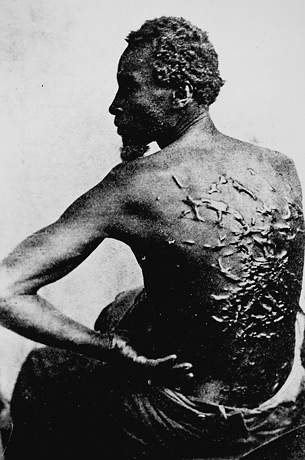
The Holocaust is a major example Jewish suffering. In 1940, the believing Jew knew about the pogroms, crusades, destruction of the Temples. The Nazis believed that the German race was a superior one, and they deemed the Jews as inferior, and a threat to the racial purity of the Germans. I found Anti- Semitism similar to the suffering of the black slaves. The cause of their suffering both sourced from the isolation from other races (religious groups), separation from family, and absolute oppression. The blacks and the Jews were forced to feel inferior to anyone who wasn’t from their group.
Ever since I was little I was a strong believer that everyone should be treated equally. When I was in the 6th grade I was riding the bus home and I heard some kid laughing in the back. The 6th grader boy had asked the 5th grader boy what 100 X 100 was and the 5th grader figure out an answer. Like a bully, the 6th grader began to laugh and point out to everyone on the bus that this 5th grader was slow. Everyone quickly looked to wait for the 5th grader’s reaction. I saw he was completely humiliated and wanted to disappear right there. I could not take this kind of ridicule, so I quickly thought of my own math problem to test out on the bully. I asked the bully after I got everyone’s attention on the bus. The funny part was that the bully had an even more embarrassing reaction than the 5th grader: he was completely silent and even started to tear up. His wide-eyed look and silence put him right back in his place and he quickly turned away blushing. This showed that his mockery of the younger student was a way to cover up for his own weaknesses and insecurities. Although the suffering from the humiliation that the 5th grader faced was not at the same level as the Jewish or black slaves, the empathy I felt was the same for each situation. I don’t think that we should let any one person or religion suffer. In my opinion, even if God will solve all of the problems in the end, in the short-run there is definitely a clear loss.
The degree of the pain suffered makes it hard to comprehend that anyone could remain faithful to a higher power. The victims of the Holocaust did not control their own lives physically or mentally, however spiritually they were free to think whatever they wanted. With the hope that God might one day save them from their struggles, Jews could manage to stay sane. Unfortunately, some Jews either were unlucky or did not catch this notion and therefore did not survive the Holocaust. Others wondered where he was when they were in desperate times. A victim of the Holocaust, Judith H. Sherman, challenges the existence of God:
“I will show
You sights
Not fit
For Godly eyes
(not fit for thee
is it for me?)
who will make it fit for Thee?
For Your divine grief
I would hand a handkerchief,
I have none
Nor am I in need of one,
We drink our tears
-- water shortage.”
Sherman, along with the Jewish population in Germany during World War II, was put in the ultimate imprisonment in the Ravensbruck death camp when they were very young. The Jewish youths were innocent and blameless, yet they still endured a journey of torture, hunger, and the death. I did a research paper on Anne Frank in the 4th grade and I remember a quote that really stuck out to me about her positive attitude even in the most miserable circumstances:
"... in spite of everything, I still believe that people are really good at heart. I simply can’t build up my hopes on a foundation consisting of confusion, misery, and death. I see the world gradually being turned into a wilderness, I hear the ever approaching thunder, which will destroy us too, I can feel the sufferings of millions and yet, if I look up into the heavens, I think that it will all come right, that this cruelty too will end, and that peace and tranquility will return again."
Fall semester of my sophomore year I am taking a class that is actually called “the Holocaust.” This will hopefully broaden my knowledge of the Jewish faith and give me the opportunity to learn how it was tested by this shameful period in history. I have always found the Holocaust fascinating and look forward to seeing the role of religion in the lives of the people the lived through it.





